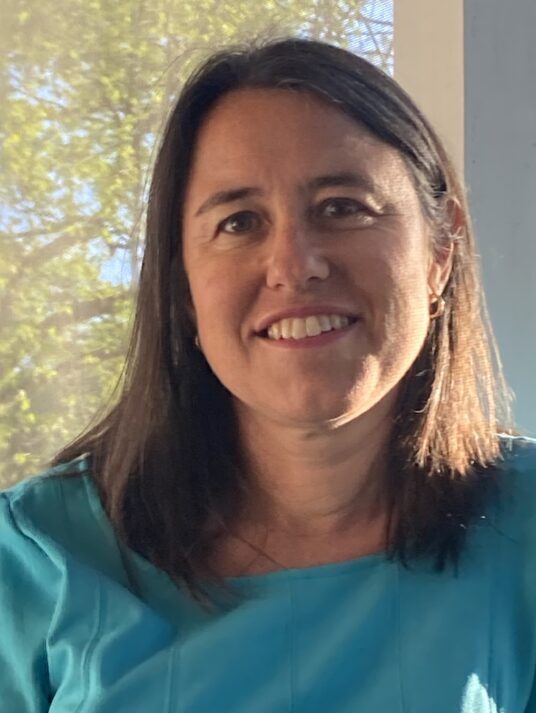 Climate change has been described as the single biggest health threat facing humanity. Physician-researchers through the Institute for Global Health and Infectious Diseases (IGHID), UNC’s engine for global health research, are actively engaged in a variety of efforts to prepare and protect the health of the most vulnerable populations. Some may go where outbreaks occur, to serve local communities by sharing expertise that can help to contain and manage infectious diseases. Others are advising international health organizations and changing world health guidelines through evidence-based research.
Climate change has been described as the single biggest health threat facing humanity. Physician-researchers through the Institute for Global Health and Infectious Diseases (IGHID), UNC’s engine for global health research, are actively engaged in a variety of efforts to prepare and protect the health of the most vulnerable populations. Some may go where outbreaks occur, to serve local communities by sharing expertise that can help to contain and manage infectious diseases. Others are advising international health organizations and changing world health guidelines through evidence-based research.
University Research Week – Lunch & Learn – Friday, Oct. 27, 12-1pm.
Sign up to hear from three IGHID physician-researchers who will introduce their work during University Research Week. They’ll also explain how they are working to mitigate the impacts of climate change in their global health research.
Infections on the Move: The Real Frontline
William “Billy” Fischer, MD, Associate Professor of Medicine in the Division of Pulmonary and Critical Care Medicine, and Director of Emerging Pathogens, UNC Institute for Global Health and Infectious Diseases
Over the past few decades, the number of emerging infectious diseases that spread to people — especially coronaviruses and other respiratory illnesses believed to have come from bats and birds — has skyrocketed. In fact, a new emerging disease surfaces reportedly five times a year. Dr. Fischer will talk about the real front line where cross over events are occurring, and how climate change has increased the range of vectors, and potentially the numbers of vector species. He’ll also share how UNC Medical Center is preparing for future emerging pathogens.

Dr. Fischer is a pulmonary critical care physician who directs emerging pathogens at the UNC School of Medicine and around the world. Dr. Fischer is also an international expert on Ebola management, who treats special pathogen patients in Africa, around the world, and at home. Dr. Fischer’s work is focused on understanding host factors that underly susceptibility to severe viral infections, evaluating novel therapeutic interventions to improve mortality from severe viral infections, and operationalizing these interventions in resource constrained settings. Last year, UNC was selected to become a Regional Emerging Special Pathogen Treatment Center, funded through the U.S. Department of Health and Human Services. This effort, led by Dr. Fischer and Dr. David Wohl, in collaboration with UNC Hospitals colleagues, will bolster the country’s preparedness and capacity to respond to emerging pathogens during medical and public health emergencies.
Weather Patterns and Diarrhea Risk in LMIC Children
Sylvia Becker-Dreps, MD, MPH, Professor of Family Medicine and Professor in the Department of Epidemiology, Director of the Office of Global Health Education, and the UNC Program in Nicaragua.

Diarrheal diseases, which can be associated with climatic factors, remain among the leading causes of child death globally, disproportionately affecting populations in low- and middle-income countries (LMICs). And, climate conditions are becoming increasingly more suitable for the transmission of various water- and vector-borne illnesses. At the same time, the increased incidence of extreme weather events attributed to climate change is shown to enhance disease transmission channels, such as lack of sufficient water for hygiene during droughts and contact with contaminated water following floods. Dr. Sylvia Becker-Dreps will describe this challenge and explain what UNC researchers are doing to mitigate the impact on children.
Dr. Becker-Dreps is a professor of family medicine and director of the Office of Global Health Education, and recently helped to introduce two new global health experiences for medical students. Dr. Becker-Dreps focuses on childhood diarrhea, which is often associated with climatic factors, and vaccine effectiveness in low- and middle-income countries (LMICs). She evaluates the impact of rotavirus immunization programs in Nicaragua and the U.S., and is currently conducting studies to understand why vaccines have lower effectiveness in low-income settings.
Antimicrobial Resistance and Climate Change: Two Global Challenges Intertwined

David van Duin, MD, PhD, Professor of Medicine, Director of Immunocompromised Host Infectious Diseases.
Antibiotic resistance (AMR) has been found in all regions of the world, and it threatens our progress in healthcare, and ultimately life expectancy. Globally, AMR is associated with longer state of illness, higher mortality rates, increased costs, and ineffective antibiotic treatments. High consumption of antibiotics, and factors associated with bacterial spread are contributing to increasing rates of AMR globally. But the climate crisis is worsening antimicrobial resistance. Research has shown that increased temperatures increase both the rate of bacterial growth and the rate of the spread of antibiotic-resistant genes between microorganisms. Dr. van Duin will discuss the impact of climate change on AMR, and highlight some UNC initiatives to fight AMR.
David van Duin, MD, PhD, is a professor of medicine, founding director of the Immunocompromised Host Infectious Diseases Service at UNC Medical Center and a member of the UNC Institute for Global Health and Infectious Diseases. Dr. van Duin was drawn to the field while working as an infectious disease physician at the Cleveland Clinic, seeing the first patients infected with carbapenem resistant Klebsiella pneumoniae–infections that were essentially untreatable. He researches multi-drug resistant Gram-negative bacteria, and infections in immunocompromised patients. He is also PI for the Multidrug-Resistant Organisms (MDRO) Network within the NIAID Antibacterial Resistance Leadership Group.
The Program on Antimicrobial Resistance at UNC to Promote Scientific Excellence (PAUSE), an interdisciplinary proposal led by Dr. Gauri Rao, Dr. Brian Conlon, Dr. Sid Thakur, and Dr. van Duin, was a finalist for last year’s Creativity Hubs competition. Furthermore, Dr. Thakur and Dr. van Duin recently submitted a T32 training grant proposal focused on AMR. The UNC Chancellor’s discretionary fund is currently supporting one of the proposed PAUSE projects, spearheaded by Dr. Heather Henderson, which focuses on the spread of resistant bacteria in North Carolina.
Panel Emcee
 Tessa Andermann, MD, MPH, is an Assistant Professor of Medicine and Infectious Diseases physician specializing in the care of patients with compromised immune systems. Her research focuses on how intestinal microbiome-host interactions impact infectious complications and other outcomes in patients with hematologic malignancies. Her goal is to develop microbiome-targeted therapies for the prevention and treatment of infectious diseases in these and other immunocompromised patient populations.
Tessa Andermann, MD, MPH, is an Assistant Professor of Medicine and Infectious Diseases physician specializing in the care of patients with compromised immune systems. Her research focuses on how intestinal microbiome-host interactions impact infectious complications and other outcomes in patients with hematologic malignancies. Her goal is to develop microbiome-targeted therapies for the prevention and treatment of infectious diseases in these and other immunocompromised patient populations.
